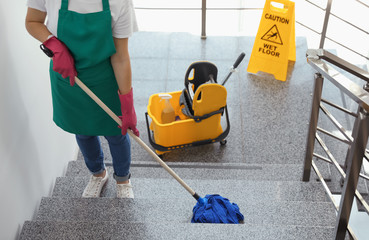Essential Insights into Pest Control
Pest Control Quincy involves preventing or eliminating unwanted organisms. Preventive practices include scouting and monitoring to determine whether or when pest control is needed.

Natural enemies, such as predators and parasites, help reduce the population of some pests. Physical barriers, such as mountains and bodies of water, limit the movement of some pests.
The proper identification of pests — whether they are plants, insects or microbes — makes controlling them much easier and less expensive. Errors in pest identification often result in improper control tactics, which waste time and money and may create unnecessary risks to people or the environment. If you are unsure of a pest, contact your county extension service or a pest management professional (also known as an exterminator) for help.
In addition to determining the most effective control methods, accurate pest identification will enable you to plan for prevention. For example, knowing what a pest eats and how it reproduces helps you to protect people, property and collections from the damage they cause. It also enables you to select and use cultural practices, mechanical controls and/or chemicals in an integrated pest management (IPM) strategy that minimizes the use of harmful substances.
When possible, identify pests to the species level. This is important because species within the same genus often behave differently from one another and have different host plants, natural enemies, feeding habits, etc. Identification to the species also enables you to gather all of the information about the pest that is needed to develop an IPM program, including habitats, life history traits, and limiting factors.
Identifying a pest begins by noting its characteristics, such as size, color and number of legs or wings. Then visit a pest guide to learn about that specific species, its habits and habitats, threats, signs of an infestation, prevention and control measures, and more.
Many pests cause direct damage to plants, which can be seen as holes in leaves and fruit, speckles, distorted foliage and flowers, and wilted or weakened plants. Some cause indirect damage when they transmit pathogens — disease-causing bacteria, viruses or fungi — from one plant to another. Other pests damage plants by consuming nutrients that the plant needs or by disturbing its roots, stems and other parts.
Pests can be found inside and outside homes, and are usually a nuisance rather than a health hazard. However, some pests contaminate food and can even attack the family pet. To prevent them from entering, close doors and windows, seal cracks, install tight screens on vents, vacuum indoors and swat flies.
Prevention
Pests are organisms (such as insects, weeds, bacteria, viruses, nematodes, or vertebrate animals) that injure or destroy crops, forests, pastures, lawns, gardens, buildings, and human-made structures. They also interfere with soil health, nutrient availability, and watershed functions, displace native species, and negatively impact terrestrial and aquatic ecosystems.
Controlling pests is usually a matter of prevention and suppression, although eradication may be necessary in extreme situations. Preventing pests from causing damage in the first place is the best approach, and is generally less expensive than controlling them once they are present. To be effective, prevention must be holistic in nature and incorporate all available control techniques, including physical, cultural, genetic, biological, chemical and mechanical controls.
Physical control methods include the removal of food, water and shelter from pest habitats, as well as regular trash removal and reduction of places where they might hide or nest. Cultural practices can also directly influence pest populations and environmental factors that support them, such as adjusting weather conditions or land use to make the environment unsuitable. Chemical control includes the direct application of substances to reduce pest numbers or damage, and may be used in combination with other management strategies.
Biological control is based on the use of natural enemies, such as parasites, predators and herbivores, to manage pest populations. This can be done in the field by releasing natural enemies, such as aphids or ladybugs, into an area to infest a pest; or, as with classical biological control, new organisms that are introduced from other areas to provide a more consistent and long-term source of enemies.
Whenever possible, avoid the use of chemicals. There are many relatively low-impact options, such as insecticidal soaps, horticultural oils, botanicals (e.g., pyrethrum, neem and rotenone), entomopathogenic nematodes (tiny worms that kill caterpillars), and more. When it does become necessary to use chemicals, choose those with the lowest risk to people and other organisms, such as microbial products that kill only the target pest (e.g., bacillus thuringiensis ‘Kurstaki’). Avoid the use of broad-spectrum insecticides because they also kill beneficial insects.
Suppression
Once pest populations are detected, reducing them to an acceptable level is often the goal. Suppression is usually achieved by a combination of control tactics.
Natural forces such as climate, natural enemies, and barriers often affect pest populations directly. For example, plant-eating pests may be killed or suppressed by rain, freezing temperatures, drought, and other weather conditions. Likewise, predatory insects and other organisms that feed on or parasitize pests can help suppress their numbers. Natural barriers, such as soil characteristics, topography, or plant-eating birds may also limit pests.
Other factors that affect pests include the availability of food, water, shelter, or other needs. For example, if food is plentiful and easily accessible, or if water is readily available, the population of some pests will grow. This is why it is important to keep pests from being able to find what they need.
Eliminating or preventing access to these elements is usually the primary goal of pest control. Some of these strategies are called cultural, physical, or mechanical controls. Examples include removing clutter in and around homes, cleaning up crumbs and garbage regularly, and caulking cracks and crevices to keep pests from entering buildings. Cultural practices such as crop rotation, mulching, and using pest-resistant plant varieties can help make a site unfavorable to pests.
Biological or chemical controls are sometimes used to manage pests, as well. These methods can include releasing natural enemies into an area to prey on or injure pests, as well as more direct approaches such as genetic manipulation (such as producing and releasing sterile insect species) or use of pheromones.
In general, all of these approaches aim to disrupt the balance of organisms in a treatment area so that pests are controlled in a manner that minimizes harm to humans and other desirable organisms. In addition, they all should be applied in a way that complies with local, State, and Federal regulations.
Before applying any kind of pest control method, be sure to read the product label and pay special attention to hazard statements and precautionary instructions. Never apply a pesticide without fully understanding the risk it poses to plants, people, and pets. In addition, be sure to follow all directions for proper application and storage.
Eradication
When the goal of pest control becomes eradication, efforts must be focused on eliminating the infectious agent. The goals of eradication are to reach a state where infection is not occurring in humans or animals and where the agent no longer exists in nature or the laboratory. There are different definitions for terms such as exterminate, extirpate, eradicate, and uproot, but all mean the same thing: complete destruction. Eradication is accomplished through surveillance and monitoring to identify and interrupt transmission of the disease. Eradication is achieved when the infection has been reduced to zero at the global level and the disease has been eradicated.
Parasites are organisms that live on or in a living host and get their food from it during at least one stage of their life cycle. Parasites may also kill their hosts or prevent them from reproducing. Biological management uses parasitoids and predators to keep pest populations from becoming too large. The best-known example is nematodes, which eat the roots of weeds and other unwanted plants. In gardens, there are a variety of natural predators that can be used to control pests, including birds, squirrels, chipmunks, and robins. Other natural control agents include aphids, lacewings, and ladybug larvae.
Chemical control strategies include herbicides to kill weeds, insecticides to kill insects, and fungicides to manage diseases. The problem is that overuse of pesticides often leads to the evolution of resistant pests. In addition, pesticides can damage other beneficial insects and wildlife. They can also run off the soil and contaminate waterways.

